In recent years, there has been a growing concern over the effects of text messaging on teen literacy. While text messaging has become a popular form of communication, there is evidence that it may be having a negative impact on the literacy skills of teenagers. This article will explore the issue of textism and its effects on teen literacy.
Understanding Textism And Its Effects On Teen Literacy
These messages are typically sent using abbreviations and emoticons, and are often considered to be informal in nature. In recent years, there has been a growing concern over the effects of text messaging on teen literacy. Text messaging, or “texting”, is the act of sending and receiving short messages using a cell phone or other mobile device.
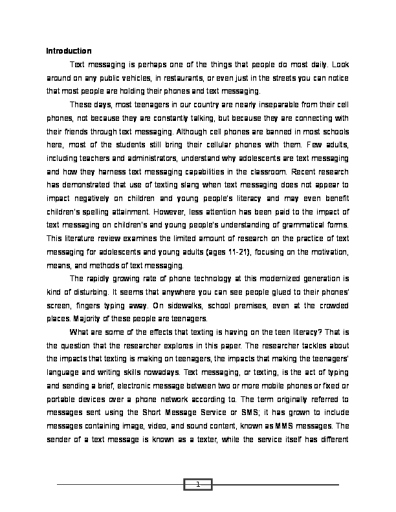
In addition, text messaging has been shown to interfere with the ability to read and comprehend complex texts. While text messaging can be a convenient way to communicate, there is evidence to suggest that it may be having a negative impact on teen literacy. A number of studies have found that teens who frequently text are more likely to have lower grades and score lower on standardized tests.
There is no one-size-fits-all answer to the question of whether or not text messaging is harmful to teen literacy. However, it is important to be aware of the potential effects of text messaging on teen literacy, and to take steps to ensure that teens are still getting the reading and writing practice they need to be successful in school and in life.
What Is The Difference Between Texting And Instant Messaging?
Texting is a form of communication that is done through a cell phone, while instant messaging is a form of communication that is done through a computer. Texting and instant messaging are two different ways of communicating using text. Both texting and instant messaging can be done using a keyboard or by using speech-to-text.
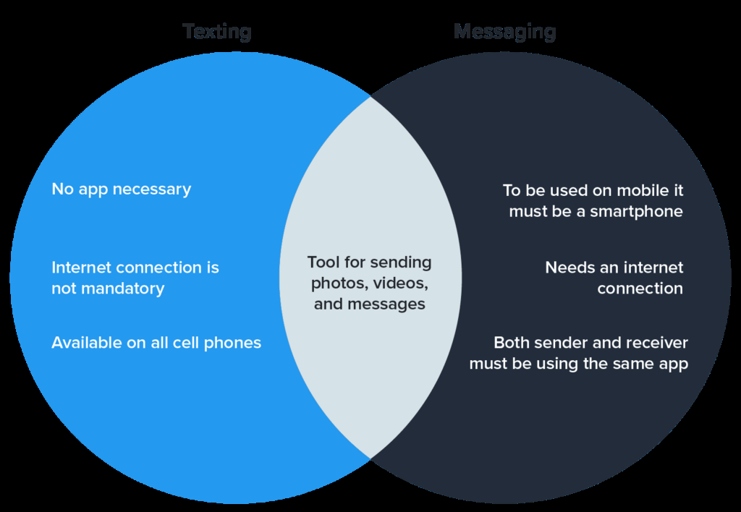
Because of this, texting has been found to be more beneficial for quick communication, while instant messaging can be more beneficial for more in-depth conversations. Texting is typically used for shorter, more immediate messages, while instant messaging can be used for longer, more detailed conversations.
Instant messaging can also be beneficial for introverts, as it allows them to communicate without having to be in the same room as the person they are talking to. Texting has also been found to be more beneficial for those who are shy or introverted, as it allows them to communicate without having to speak directly to someone.
Texting has been found to be more beneficial for those who are visual learners, as it allows them to see the text on the screen. Instant messaging can be more beneficial for those who are auditory learners, as it allows them to hear the person they are talking to.
Texting has been found to be more beneficial for those who are multitaskers, as it allows them to text and do other things at the same time. Instant messaging can be more beneficial for those who want to focus on one thing at a time, as it allows them to have a conversation without being distracted by other things.
What Is Textism?
It is most commonly seen in the form of text messaging, but can also be found in other forms of electronic communication, such as email, instant messaging, and social media. Textism is a form of communication that uses text-based symbols or abbreviations in place of words or phrases.
A study by the National Literacy Trust found that nearly one in four teens who frequently use textisms in their writing have lower than average literacy levels. This is likely due to the fact that textisms are often used in place of proper grammar and spelling, which can make it difficult for readers to understand the meaning of the message. Textism has been shown to have a negative effect on teen literacy.

Teens should be encouraged to use proper grammar and spelling when writing for school or other formal purposes. While textisms can be a convenient way to communicate, it is important to be aware of the potential negative effects on literacy.
The Negative Effects Of Texting and Textism On Teen Literacy
In recent years, there has been a growing concern over the negative effects of texting and textism on teen literacy. While text messaging has become a popular form of communication, especially among teenagers, there is evidence that it may be having a negative impact on their literacy skills.
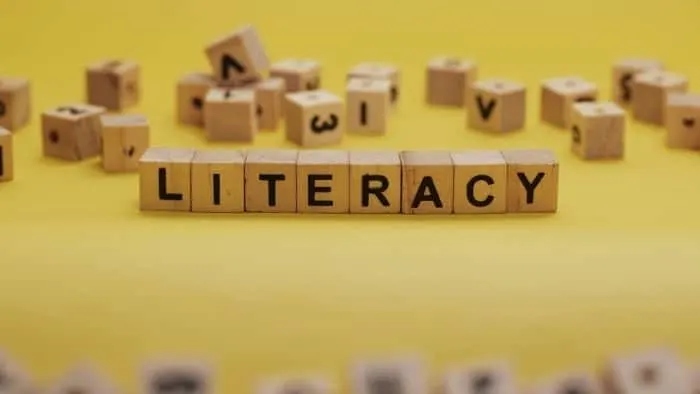
A study by the National Literacy Trust found that nearly a quarter of teenagers aged 16-18 felt that text messaging had a negative effect on their spelling and grammar. In addition, the study found that nearly one in ten teenagers said that text messaging had made them less likely to read for pleasure.
First, the abbreviated and often informal nature of text messaging can lead to poor spelling and grammar skills. Second, the constant use of text messaging can lead to a decrease in the amount of time spent reading, which can in turn lead to a decline in literacy skills. There are a number of reasons why texting may be having a negative impact on teen literacy.
While text messaging can be a convenient and fun way to communicate, it is important to be aware of the potential negative effects it can have on teen literacy. By taking steps to encourage teens to read more and to use proper spelling and grammar, we can help to ensure that they maintain strong literacy skills.
Not Being Able To Tell Standard From Non-standard Spelling
One of them is that it can be difficult to tell standard from non-standard spelling. There are a few negative effects of textism and text messaging on teen literacy. This can lead to confusion and frustration for both teens and their parents or teachers.
Another negative effect is that text messaging can promote lazy spelling and grammar. However, this can lead to teens forgetting how to spell properly or use proper grammar in other contexts. This is because it is often quicker and easier to abbreviate words or to use text speak than it is to write out the full word or phrase.
This is because it can be tempting to stop what you are doing and reply to a text message, or to check your phone for new messages. Texting and text messaging can also be a distraction from other tasks, such as homework or studying for a test. This can make it difficult to focus on the task at hand and can lead to poorer performance.
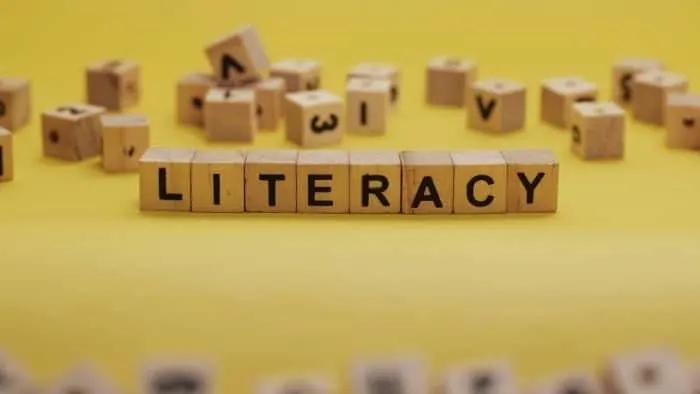
Finally, text messaging can sometimes be used to bully or harass others. This is because it is easy to send an anonymous or mean message to someone without them knowing who sent it. This can be very hurtful and can lead to feelings of isolation or anxiety.
For example, text messaging can be a quick and easy way to communicate with friends and family. While there are some negative effects of textism and text messaging, there are also some positive aspects. Overall, it is important to be aware of the potential negative effects of text messaging so that you can avoid them. It can also be used to stay organized and to reminders.
Forgetting Grammar Rules
Texting and other forms of “textism” are having a negative effect on teen literacy. Studies have shown that teens who text more often have poorer grammar skills. This is likely due to the fact that text messaging is a very informal form of communication and does not require proper grammar.
In addition, the constant use of textspeak can make it difficult for teens to transition to more formal writing when they need to. Texting also encourages abbreviations and slang, which can further reduce the quality of writing.
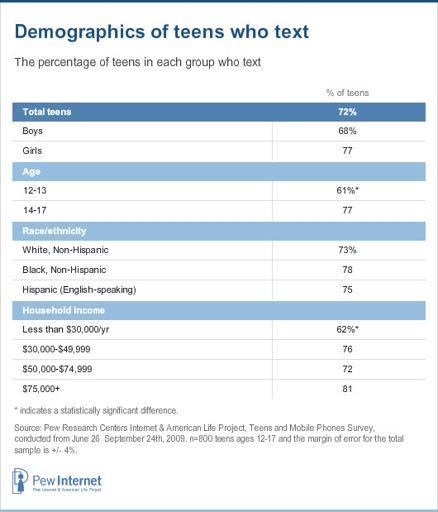
It is important for parents and educators to be aware of the potential impact of textism on teen literacy, and to help teens find a balance between using texting and other forms of communication. All of these factors can lead to lower grades and difficulty in school.
Becoming Lazy And Preferring To Use Textism
In addition, text messaging can be a distraction from other important tasks, such as homework or studying for a test. Lazy and preferring to use textism is not a good thing when it comes to teen literacy. This can lead to problems in school and in the workplace down the road. When teens rely too much on text messaging and other forms of text-based communication, they can start to lose touch with proper grammar, spelling, and punctuation. It’s important for teens to find a balance between using text-based communication and other forms of communication, such as face-to-face conversation or writing.
Not Being Able To Use Proper Punctuation
One of the most noticeable negative effects of texting and textism on teen literacy is the improper use of punctuation. This can have a serious impact on their ability to communicate effectively in writing. This can lead to teens not understanding the proper use of punctuation in written language, which can have a negative impact on their literacy skills. In addition, the use of textese, or text shorthand, can also lead to teens not understanding proper grammar and punctuation. This is most likely due to the fact that texting is often done with a limited number of characters, so proper punctuation is often not possible.
Not Being Able To Use Uppercase And Lowercase Letters Properly
One of the most common complaints from educators is that students are not able to use proper grammar and punctuation when they are texting. There are a growing number of studies that suggest that text messaging and other forms of “textism” are having a negative effect on teen literacy. This can lead to problems in other areas of their writing, such as essays and research papers.

This can make it difficult for them to express themselves in more formal settings. Another concern is that students who rely heavily on text messaging are not developing their own voice and style of writing.
As a result, they may not see the need to use proper English in other areas of their lives. Lastly, some experts believe that the constant use of abbreviations and emoticons in text messages is desensitizing teens to proper grammar and spelling.
Having A Weaker Vocabulary
Additionally, a weaker vocabulary can lead to a poorer understanding of grammar and proper sentence structure. It can also make it more difficult for them to express themselves in writing. Finally, a weaker vocabulary can make it more difficult for teens to communicate effectively with their peers. Having a weaker vocabulary can have a number of negative effects on teen literacy. For one, it can make it more difficult for teens to understand what they read.
Relying Too Much On Tech To Fix Errors
Text messaging can also lead to shorter attention spans and less ability to focus on tasks. Texting and textism have had a negative effect on teen literacy. Studies have shown that text messaging can lead to lower grades and less interest in reading. In addition, text messaging can lead to poorer writing skills and more errors in writing.
Having Less Time And Interest In Books
And, when given the choice between reading a book and spending time on their phone, many teens will choose the latter. With school, homework, extracurricular activities, and socializing, there are only so many hours in the day. This is due, in part, to the fact that they have less free time. When it comes to books, teens today are less likely to be interested in reading them than they were in the past.
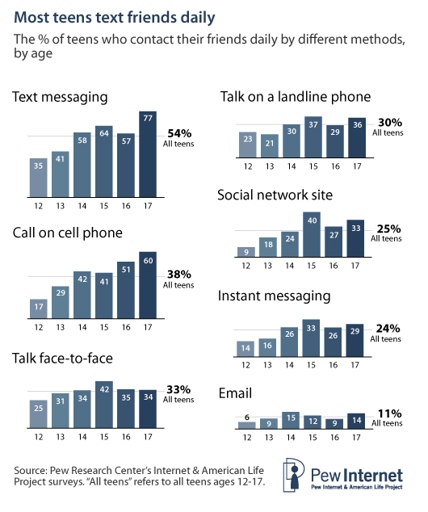
Additionally, the constant distraction of their phone can make it difficult for them to focus on reading for extended periods of time. The abbreviated language and lack of proper grammar that are often used in text messages can make it difficult for teens to read and understand traditional books. Texting and other forms of “textism” have also had a negative effect on teen literacy.
In a world where information is increasingly being delivered in short, bite-sized pieces, it’s more important than ever for teens to learn to read and write effectively. Otherwise, they risk being left behind. While there are many factors that have contributed to the decline in teen literacy, texting and textism are certainly among them.
Deficiency In Interpersonal Development
This can have a knock-on effect on other areas of literacy, such as reading and comprehension. Secondly, the constant use of phones and other devices can lead to a distraction from other tasks, such as homework or studying. This is because teens are not learning to express themselves properly in words, and are instead relying on shorthand to communicate. There are a few key ways in which texting and textism can have negative effects on teen literacy. This can make it difficult for teens to focus on one task at a time, and can ultimately lead to a decline in grades. Finally, the use of text messaging can also lead to social isolation. This can lead to problems with social skills and development, as well as a general feeling of loneliness. Firstly, the constant use of abbreviations and text speak can lead to a deterioration in writing skills. This is because teens are spending more time communicating with their friends via text, rather than actually interacting with them face-to-face.
Limits Social Boundaries
Texting and other forms of “textism” are having a negative effect on teen literacy. Studies have shown that teens who text more often have poorer reading and writing skills than those who don’t. This is likely due to the fact that texting requires a different set of skills than traditional reading and writing. In addition, the abbreviated nature of texting can make it difficult for teens to understand longer, more complicated texts. For example, text messaging is often done without proper grammar or punctuation, which can lead to poor writing skills.
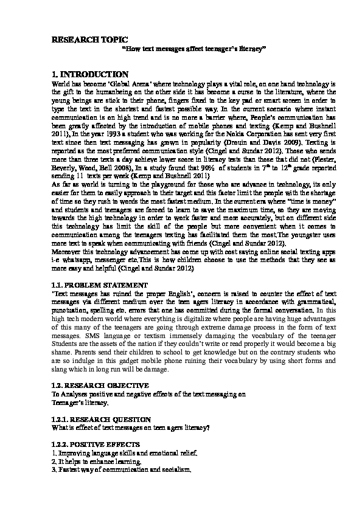
all of this can have a negative impact on a teen’s ability to succeed in school and in the workplace. Otherwise, they may find themselves at a disadvantage. In a world where communication is increasingly done through text, it’s important for teens to be able to read and write well.
Encourages Instant Gratification
Textism is a form of communication that encourages instant gratification. It is often used in place of proper grammar and can lead to a decline in teen literacy.
Studies have shown that textism can lead to a decline in proper grammar and can hinder a student’s ability to read and write properly. Texting and textism can have a negative impact on teen literacy. In addition, textism can also lead to a decline in vocabulary and an overall decrease in the quality of a student’s writing.
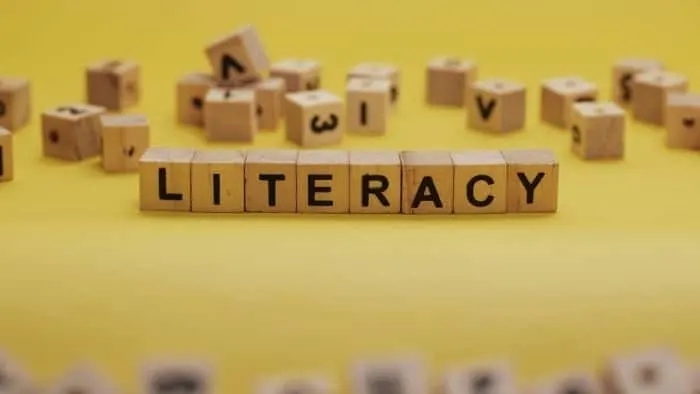
Texting and textism can also have a negative impact on the way teens interact with each other. Texting and textism often lead to a lack of face-to-face communication, which can impact a teen’s ability to socialize and build relationships. In addition, texting and textism can also lead to a decline in empathy and an overall decrease in emotional intelligence.
The Positive Effects Of Texting and Textism On Teen Literacy
In recent years, there has been a lot of discussion about the negative effects of texting and textism on teen literacy. While texting may have some negative effects, there are also some positive effects. However, there is another side to this story.
This can help to improve their literacy skills. In order to understand these abbreviations and symbols, teens need to be able to read and understand them. For example, texting can help teens to develop their literacy skills. This is because texting requires teens to use abbreviations and symbols in order to communicate.
This is because when teens are texting, they are constantly writing. This can help them to improve their writing skills and to become better writers. In addition, texting can also help to improve teens’ writing skills.
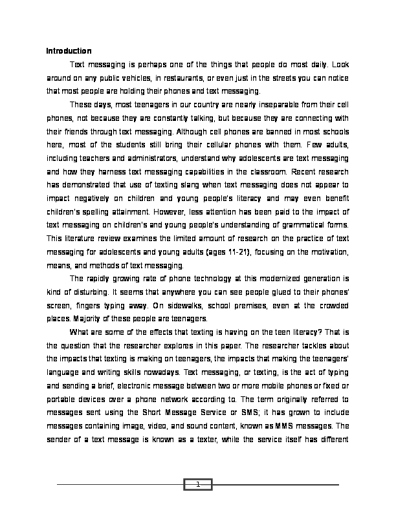
Finally, texting can also help to improve teens’ communication skills. This can help them to learn how to communicate better with others. This is because texting requires teens to communicate with each other in a concise and clear manner.
Being More Familiar With Phonetics
For one, texting can help teens become more familiar with phonetics. This is because when texting, teens are exposed to a variety of new words and phrases which can help them expand their vocabulary. This is because when texting, teens are required to use proper grammar and punctuation in order to communicate effectively. There are many positive effects of texting and textism on teen literacy. Lastly, texting can help teens build their vocabulary. This is because when texting, teens are forced to use abbreviations and acronyms which can help them understand how words are pronounced. In addition, texting can also help improve a teen’s writing skills.
Discovering Unconventional Ways To Link Sounds and Letters
The study found that the use of text messaging helped the adolescents to better understand the relationship between sounds and letters, and to better remember words. However, there are some studies that suggest that texting and textism can have positive effects on teen literacy. There is no one answer to this question as the effects of texting and textism on teen literacy are varied and complex. For example, one study found that text messaging can help improve literacy skills among adolescents who are struggling with reading.
Another study found that text messaging can help improve the writing skills of teenagers. The study found that the use of text messaging helped the teenagers to better organize their thoughts, and to express themselves more clearly.
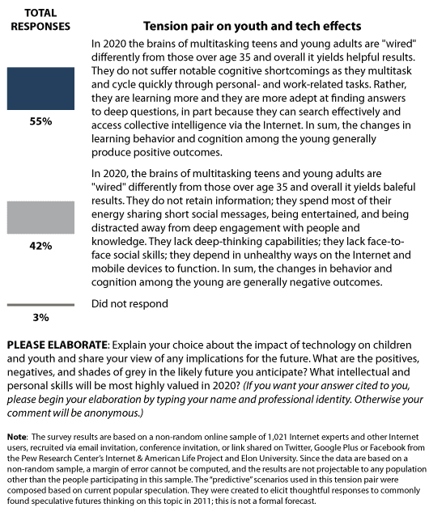
However, the studies that have been conducted so far suggest that texting and textism can have positive effects on teen literacy. Overall, the research on the effects of texting and textism on teen literacy is still in its early stages.
Having Better Verbal Reasoning Skills
Teens who text frequently are better at verbal reasoning than those who don’t text, according to a new study. Texting and other forms of “textism” have had a positive effect on teen literacy. They were also better at problem-solving and critical thinking. The study, conducted by researchers at the University of Michigan, found that teens who texted more frequently were better able to understand and use complex language.
The study’s authors say that the findings challenge the common perception that texting is detrimental to teens’ literacy skills. They say that the findings suggest that texting can actually be beneficial for teens’ language development.
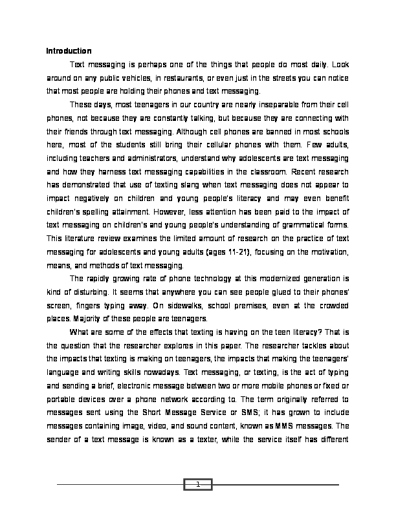
They say that educators should consider incorporating texting into their teaching practices, and that parents should encourage their children to text more frequently. The study’s authors say that the findings have implications for educators and parents.
Being Encouraged To Get More Creative With Writing
Texting allows teens to communicate in a quick, efficient manner that can be easily understood by the recipient. This form of communication has helped to improve the writing skills of many teens. Texting and other forms of textism have had a positive effect on teen literacy.
This can help to improve their writing skills overall. Texting also allows teens to be more creative with their writing. They can use abbreviations and emoticons to convey their message in a more creative way.
It has allowed them to connect with each other in a more informal way. Texting has also had a positive effect on the way that teens interact with each other. This has led to teens being more comfortable communicating with each other in writing.
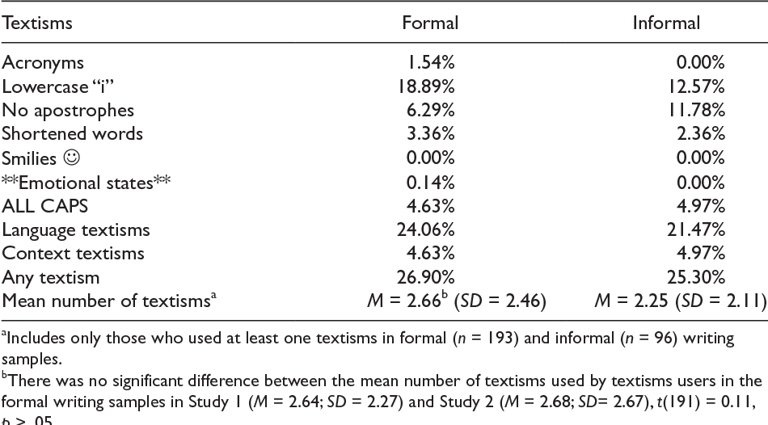
This has led to improved writing skills and more positive interactions with each other. They have allowed teens to communicate in a more efficient and creative way. Overall, texting and textism have had a positive effect on teen literacy.
Being More Confident Through Creative Literacy
Texting and other forms of “textism” have had a positive effect on teen literacy. In addition, the use of textspeak has allowed teens to express themselves in a more creative way. The ability to communicate in short, concise messages has helped teens to become more confident in their writing skills.
In addition, texting has helped to make the written word more accessible to teens. Texting has also had a positive effect on the way teens interact with the written word. The constant exposure to text messaging has made teens more comfortable with reading and writing.

In addition, the use of textspeak has allowed teens to express themselves in a more creative way. The positive effects of texting and textism on teen literacy are clear. The ability to communicate in short, concise messages has helped teens to become more confident in their writing skills.
Frequently Asked Questions
1. What is textism?
Textism is a form of communication that uses text-based symbols to represent words or phrases.
2. How is textism affecting teen literacy?
Textism is affecting teen literacy in a number of ways. First, it is causing teens to rely more on abbreviations and symbols in their writing. This can lead to problems with grammar and proper sentence structure. Additionally, textism is causing teens to use less formal language in their writing, which can lead to problems with writing for more formal occasions.
3. What are some of the most common text-based symbols used in textism?
Some of the most common text-based symbols used in textism include “u” for “you”, “r” for “are”, and “2” for “to”.
4. How can textism affect a teen’s ability to communicate effectively?
If a teen relies too heavily on text-based symbols in their writing, it can affect their ability to communicate effectively. This is because they may have trouble understanding proper grammar and sentence structure. Additionally, they may have trouble communicating in more formal settings.
5. What are some ways that parents can help their teen with textism?
There are a few things that parents can do to help their teen with textism. First, they can encourage their teen to read more often. This will help them to become more familiar with proper grammar and sentence structure. Additionally, parents can help their teen by proofreading their writing and providing feedback.
Final thoughts
In conclusion, textism and text messaging are having a negative effect on teen literacy. Teens are not reading as much as they used to, and when they do read, they are not reading at the same level as they used to. This is having a negative impact on their writing skills.